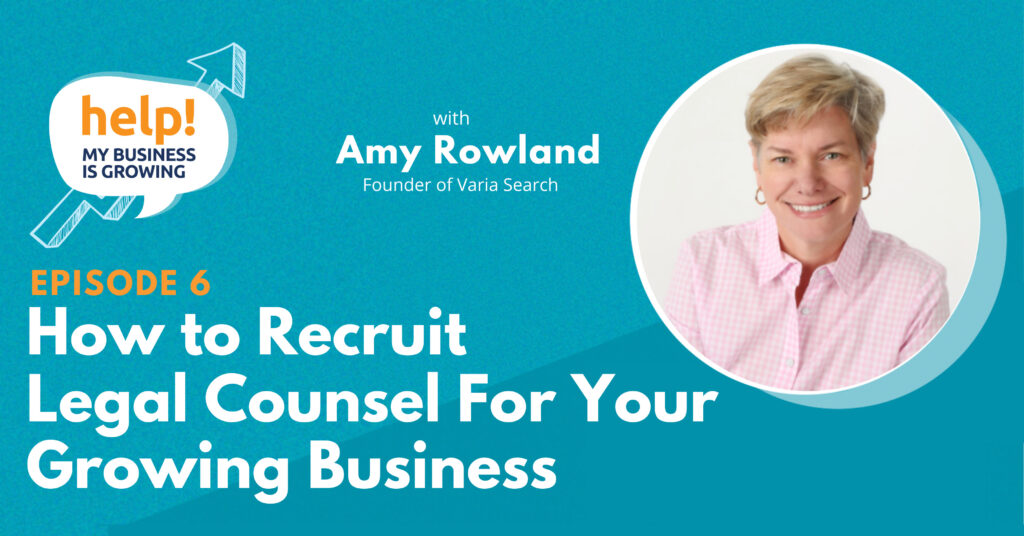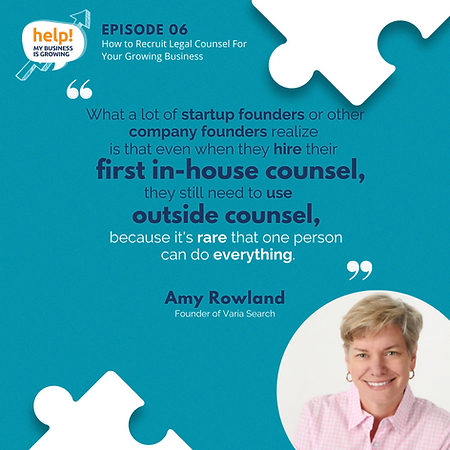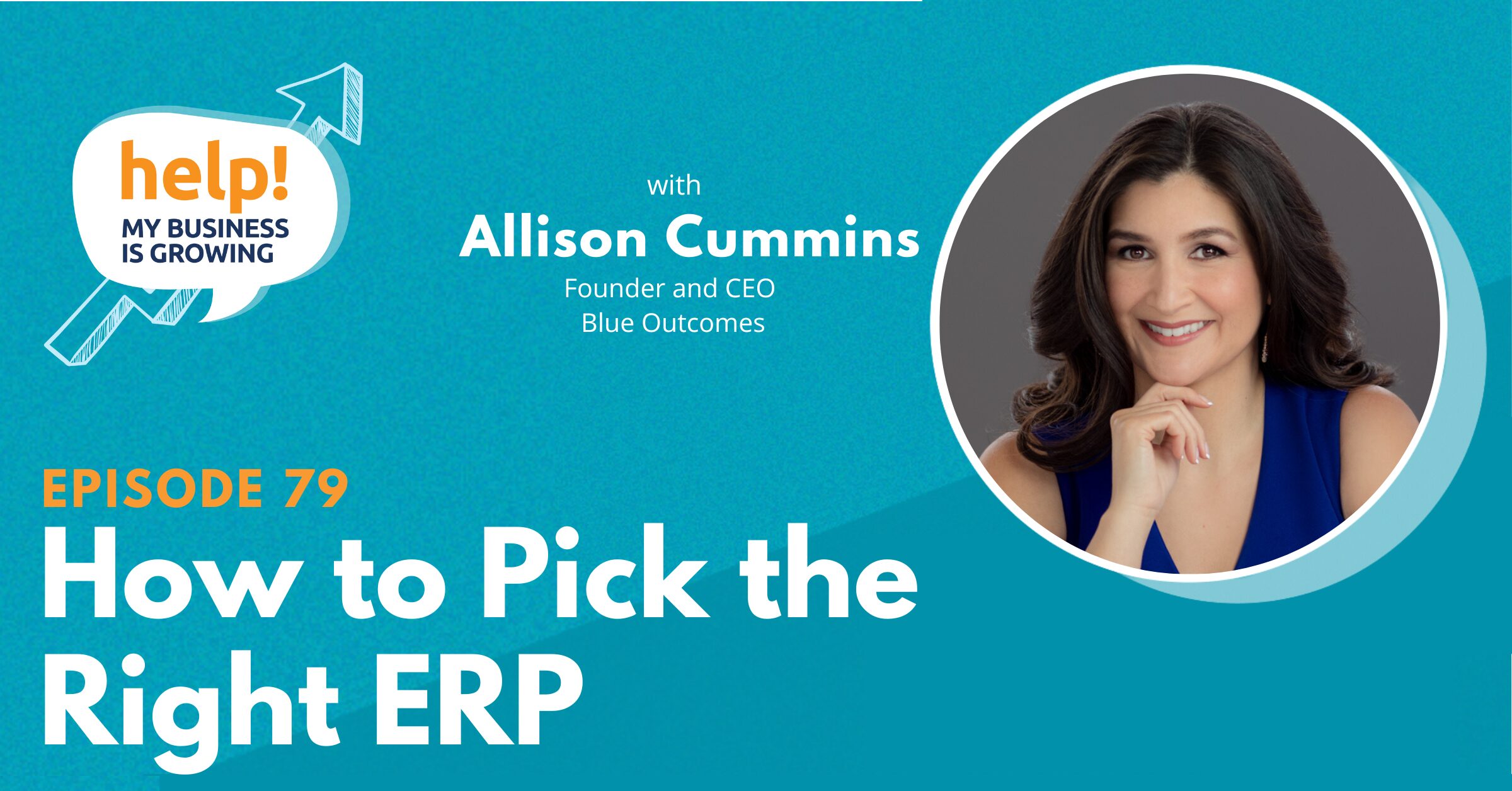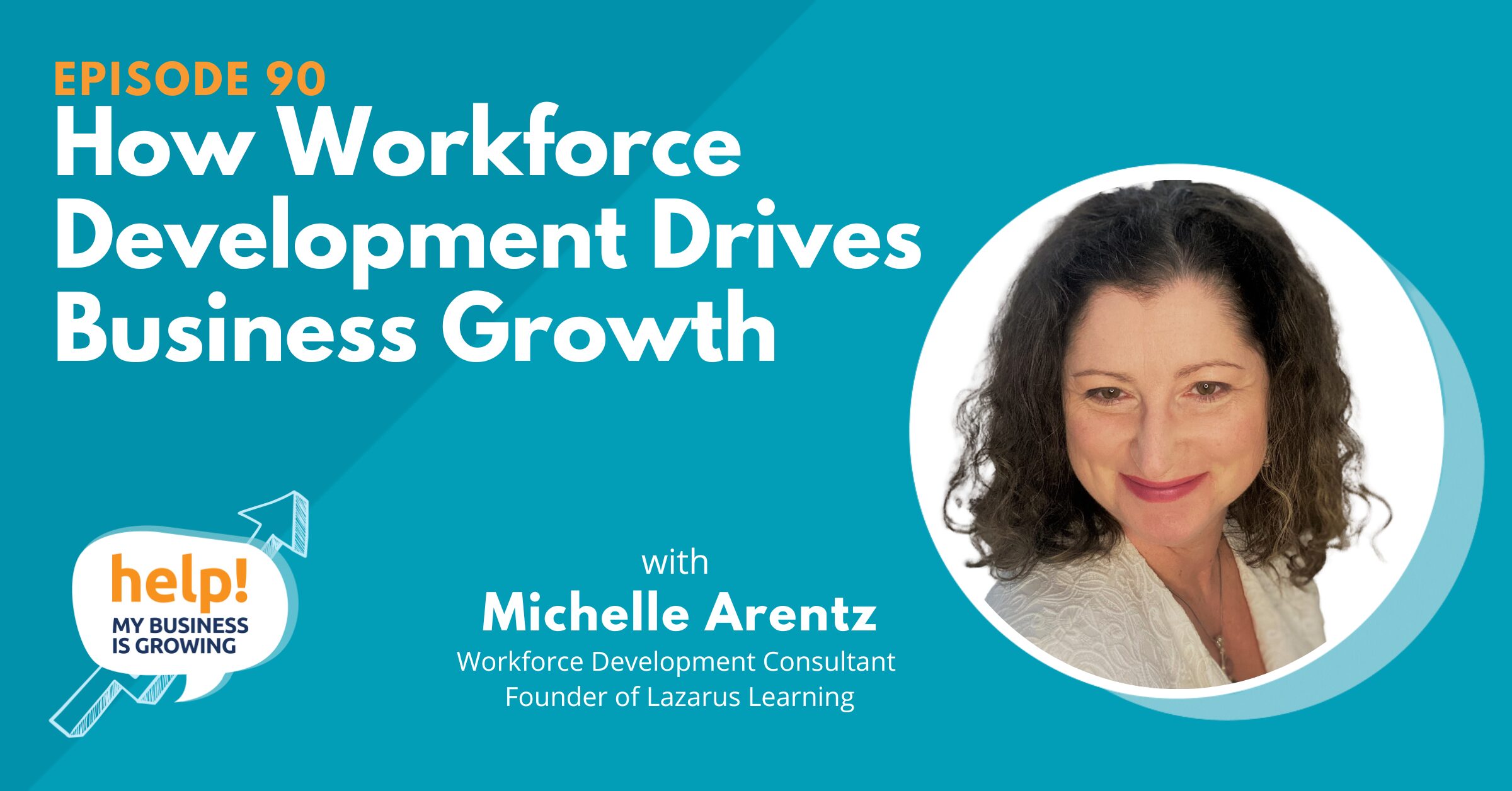So when is it time – and what is the process – of hiring in-house or recruiting legal counsel?
What should you look for in an applicant, and what is a realistic budget for this investment?
We also talk about how your company can benefit from the proper in-house counsel, including knowing your business better and responding quickly to your legal concerns and requirements.
A Fractional Talent Acquisition Partner, on the other hand, assists founders with a wide range of services – from training and finding other employees outside of the legal realm.
Independent lawyers or law firms you go to for specific legal matters.
They will have clients other than you and your business.
Your company’s lawyers who are also full-time members of your staff.
They don’t have other clients and serve only your legal needs such as employee and other transactional contracts.
Usually runs the entire legal department of any company, from a startup to a Fortune 500 company. They will also have a team of lawyers and paralegals, and contract managers working under them.
There’s a very big difference between working at a law firm and working in-house for a smaller, growing company where you’re being thrown many different issues and have business units that need answers quickly.
You want a quick learner who can cover other issues as well, so you can decrease your spending on outside counsel.
Kathy (host):
Welcome back to Help! My Business is Growing! – a podcast where we explore how to grow and build a business that is healthy and sustainable. I’m your host, Kathy Svetina. Today we’re going to be talking about recruiting for legal counsel in your business – anything from fractional legal help to employing someone full time. We’re going to look at a when you know that it’s time to actually hire someone to be your in-house counsel full time. How does that recruitment process look like? And what you should be looking for in an applicant? How much should you budget? And what are some of the budget combinations that you can use to cover that investment?
Kathy (guest):
My guest is Amy Rowland. She’s a recruiter and founder of Varia Search. Varia Search is a boutique legal recruiting and talent acquisition firm, and Amy is more than a recruiter. She is using the skills that she acquired as an educator and coach and she’s fully invested in each placement. Her expert matchmaking method results in candidates who love their new jobs and satisfied clients who value their new hires. Join me.
Kathy (host):
Welcome to the show, Amy.
Amy (guest):
Thanks for having me.
Kathy (host):
Sure. One of the challenges in growing a business is figuring out how to handle the legal questions and issues that will never to the business inevitably have, right. Anything from client and employment contracts to intellectual property, and anything and everything legal in between. You do really need someone that can help you make sense of it all manage the business risk, and help you avoid those mistakes that eventually ended up, you know, affecting the finances. And this is where you come in to help me because you’re a Fractional Talent Acquisition Consultant specializing in legal recruiting. You help business owners and founders find the right legal talent. And my first question for you is, how and if a Fractional Talent Acquisition Consultant such as like yourself, is different from a recruiter who also specializes in the legal field?
Amy (guest):
Okay, so yeah, those are actually two separate things that I do. I do the legal recruiting and then I also serve as a Fractional Talent Acquisition Partner, helping people with all kinds of things – from training to helping them find other employees outside of the legal realm. And so those are two separate things, and as you mentioned, the legal recruiting is really trying to help them find a full-time it could be contracted, but I do tend to focus on full-time employees who will come and serve as an in-house legal counsel. And recruiting is usually structured in terms of usually a fee based on compensation that the person is getting for their first year of salary. I hope I answered that question.
Kathy (host):
Yeah, you did. And I do want to dive deeper into the topic of legal recruiting. But before we go into this, I want to define some of the terms so that we all know what we’re talking about. And if you could, I would love it, if you could define it for me. What is an outside counsel? What is an in-house counsel? And what is it actually the general counsel, what are those terms mean, and how are they different?
Amy (guest):
You mentioned three terms – outside counsel, in-house counsel, and general counsel. Okay, so let’s start with general counsel. General Counsel is a title that someone has when they’re working for a company that could be really any size – from a startup to a Fortune 500 company, and they’re usually the ones running the legal department. Sometimes, nowadays, they’re often calling general counsels head of legal or chief legal officer, but it’s really the head of the legal department who will have lawyers and paralegals and contract managers working under them.
Amy (guest):
And then outside counsel is the people that you go to for specific matters. It could be a law firm, it could be an individual lawyer who owns their own firm. You’re seeking outside counsel for various matters.
Amy (guest):
Now, in-house counsel, is, as I mentioned, the full-time staff member that you have on your staff. They’re your company’s lawyers. They’re dedicated to working for you only. An outside counsel will obviously have other clients. When you mentioned things like employment agreements, just basic transactional contracts that you may have, there are lots of different buckets that legal work can fall into. What a lot of startup founders or other company founders realize is that even when they hire their first in-house Counsel, they still need to use outside counsel, because it’s rare that one person can do everything.
Amy (guest):
A great example of that is litigation. Even it’s some of the biggest companies that you’ll hear of are going to outside firms for help on litigation. And so they’ll have somebody on the inside, usually a lawyer, managing those outside firms helping them with the litigation. Yeah, I hope I defined those terms for you.
Kathy (host):
That’s great. Thank you so much for doing that. When do you know that it’s the time to actually hire someone to be your in-house counsel? What are some of the, I guess pinpoints where you could say, “This is exactly what’s happening in my business right now, and I really need to hire someone in the business versus having someone outside as an outside counsel?”
Amy (guest):
Well the obvious marker, you know, and from a financial perspective, you’ll like this, the obvious marker is simple math, right. Let’s add up how much I spent on outside counsel last year and let’s figure out what the going rate is for a good in-house counsel with x years of experience. And when those numbers make it, you can justify hiring somebody on the inside. If you’re spending so much on outside counsel that it would be a savings and that’s what people do all the time because it’s easy. It’s an easy mathematical problem. But what people are often finding is if they’re in a company that’s heavily regulated. I’m thinking like biotech or other heavily regulated companies that don’t want an in-house counsel long before those numbers make sense because they want somebody to help prevent problems, like the old saying, “Stitch in time saves nine” and sometimes that’s really hard to quantify. I’ve had some companies reach out to me recently that aren’t to that point on a number basis, but said, “I know that I really need a leader to help me on the legal side. And so I’m doing this long before the numbers make sense because I don’t want problems. And so um, so really, it’s it can be a judgment call.”
Kathy (host):
And I know you work a lot with startups as well. I’m curious for myself, is there a difference between a startup needing in-house counsel versus already an established business? Is there like a different set of problems that there are pinpoints where the startup needs one and more than actual established business needs one?
Amy (guest):
Well, if a company is going to go public, obviously, they’re going to need a general counsel. And sometimes startups don’t hire their first in-house legal counsel until they’re thinking about going public. But I don’t think so. I don’t think there are big differences. Again, I think the industry is going to start to determine it’s not really a startup versus established company, it’s really, you know, if they’re in an industry where they need it, they might need it sooner, but the issues are often the same.
Kathy (host):
Yeah. And how does the recruitment process for someone like this look like? What are some of the qualifications that a founder or business owner, they’re looking for someone to hire in-house for legal counsel? What should they be looking at in, in an applicant?
Amy (guest):
Oh, that’s a great question. There’s a very big difference between working at a law firm and working in-house. And so I think the number one thing that you want to look for when you’re hiring your first in-house counsel, is that they have the ability to wear many hats. You mentioned a lot of different legal areas, and it’s hard to find somebody who’s good at all of them. But what you want is somebody who can quickly learn and hopefully pick up some of those areas, so you can decrease your spend to the outside counsel.
Amy (guest):
I would say the number one quality that I’m looking for when I’m recruiting any sort of in-house counsel, is the ability to wear many hats and operate at a quick-moving pace, because in-house, you’re being thrown many different issues really quickly, and you have business units who need answers quickly. If you have a sales team that’s trying to sell a software product, they don’t want to wait days for your response to get the contract written, they need it quickly.
Kathy (host):
So would you say that it benefits to actually hire someone who already has that experience working with the smaller companies in the startup so they can be agile and nimble with these types of requests versus someone who’s been in larger companies and there used to be more of process-driven legal counseling?
Amy (guest):
I’ll never say never, and I hate to say –
Kathy (host):
Yeah.
Amy (guest):
Certain to say, “Oh, nobody coming from a big company can ever work in a startup or a small company.” But you bring up a really interesting point. A lot of times, very large companies are siloed. They have processes in place, they have whole units in place to deal with all of these issues, and they have multiple contract managers, and then somebody’s thrown into a legal department have only a few or maybe they’re even the only one. And it’s a very different story. Yes, they either have to have done that before then in that setting or at least be able to adapt to it very quickly.
Kathy (host):
The companies that I work with have a lot of intellectual property. And when do you think it is better to have someone take care of that for you inside of the business versus hiring like I said, someone who’s a specialist that that’s an outside counsel. Do you think there’s a benefit of having someone do that in-house? Does it have to be a certain volume that you’re working with that you you need to hire for someone else? Should you just hire a generalist at the initially in the company, and then use someone who specializes for intellectual property to work outside of the business like an outside counsel?
Amy (guest):
Yeah, that’s a good question. Again, back to my example. I don’t know what types of companies you’re working with. But my example biotech is a great example. Many biotech companies won’t actually hire a general counsel, a generalist, first, they’ll hire an intellectual property lawyer first, and then after that person is in place, then they will build out their legal team and hire a general counsel because they need somebody first to focus on the IP work. But in answer to your question, again, it’s hard to say well when you have this volume or this dollar amount, it really is. When do you really need somebody to fully understand your business because outside counsel, they’re great, and there are many, many top law firms and top lawyers out there who can do great work, but they’re not sitting on the inside day after day after day. And so if you feel like you can really benefit by having you know, an IP lawyer, really understand the business and be sitting in on those business meetings and be a true partner, then that’s when you want to really hire in-house.
Kathy (host):
That’s great information. And you know, from someone who’s looking on in this through a financial lens, right, I’m always thinking about how much do I need to budget for someone like that in your business? What do you think it’s a realistic budget with the recruitment fee and everything fully loaded with the benefits to offer someone like that who would be an in-house counsel? If I know it’s hard to say it depends on the qualification probably. But what are the realistic range?
Amy (guest):
Well, yeah, it’s gonna depend on obviously, location, right?
Kathy (host):
Yep.
Amy (guest):
Are they in New York, San Francisco, or the Midwest? Do they have five years experience, ten years experience, but you know, just understanding that first-year law firm associates in New York City are getting $190,000 a year plus bonuses, I believe, is the latest. A lawyer moving in-house is probably going to expect and want between and again, in my market, New York, 125 and up, $125,000 a year, then, as you mentioned, you’ve got the benefits of recruiting fee to recruit a lawyer, usually 25% of their salary. Let’s say they’re getting 150 are looking at another $30,000. Yeah, you’re gonna have to spend it’s already, we’re adding up to about 200,000 right there. It’s not cheap and I just want to point out, you know, because you do this work as well, and you are a fractional CFO, you can certainly fractional general counsels who will come in and work on a fractional basis and really get to know your company. There are cost-effective, to do it in the beginning, for sure.
Kathy (host):
And how do fractional legal counsels work if we can get through? I know, for me, when I’m in the business, I customized all my solutions for a particular client. Nothing is done in a cookie-cutter approach. I am there to support the business, whatever the business needs, but I’m there for a fraction of the time. Is that the way how the legal profession, the legal fractional legal people work as well, how does that work?
Amy (guest):
I think there are some that work that way and some that have set up a billable rate, and then will dedicate X amount of hours to you per month, that type of thing. I think there are a few different models that they work on them.
Kathy (host):
It’s essentially like a retainer, correct?
Amy (guest):
Yes, yes. I think that some of them will work on a retainer. And then like I said, they’ve figured out their hourly rate. They’re also firms, they’re not just individuals that sort of operate as outside GC and contract individual people out as well.
Kathy (host):
And you also recruit not just for legal talent, but also for any other talent that companies and founders need. What are some of the roles that you’re seeing that people recruit as they as they’re growing the company? What are some of the are the salespeople or the legal people? What are some of the talents that they’re really needing in the company? Do you see certain trends that people come to you when they need to hire someone in-house?
Amy (guest):
Yeah, I mean, usually the startups are coming to hire salespeople, obviously, that’s what they need to build those teams very quickly. I’m also seeing teams want to get marketing teams in place. There’s sort of two models to go somebody reached out to me the other day because she wanted to hire a CMO, the chief marketing officer. You can either hire a chief marketing officer who’s going to build their marketing team around them, or you could hire sort of lower level and then sort of let them elevate, or put somebody in above them. There’s sort of two different models, but definitely, sales and marketing because companies need to get revenue and those are two key areas for getting revenue.
Kathy (host):
And I just actually did an episode with Chris Michel, who is a salesperson and he has about 30 years of experience in sales and we were talking about when is the time to actually hire a salesperson in your business and how you put them on a commission. If you’re listening to this episode, definitely go check out that episode. It has some great, great insights on how to do that. And I asked him this question, and I want to ask you this because I’m very curious, what is it that makes a great salesperson in the business? I want to hear your perspective on this.
Amy (guest):
Wow, I will say that sales is not my expertise by any means. I personally think that again, a startup, your best person is going to be somebody just generally nimble, agile, and a quick learner obviously, and they need to be hungry. A salesperson, in my opinion, needs to have those qualities, but especially at a startup. I’m gonna have to go with another episode and see what he says.
Kathy (host):
And the other thing that we were talking about, we were talking about hiring people on 100% commission versus a base salary. So have you had an experience where you were hiring 100% commission or was that it always involves salaries and commission?
Amy (guest):
Yeah, I have not had a situation where I’m hiring on 100%. commission. That’s interesting. And a lot of actually, legal recruiters work on just commission basis. And it’s an interesting model to me. Yeah, it’s just interesting that people would just get paid if they produce. So yeah.
Kathy (host):
Yeah, I haven’t had for the businesses that I worked with, I haven’t had an experience where someone actually hired someone at 100% commission base. It’s always a combination of a base salary and a commission. I was really fascinated by the insight that Chris provided.
Kathy (host):
Moving on to the other question that I have for you is how does the process of involving someone like you in the business? How does it look like? Do you look at the business model and you identified what are some of the particular seats that a business owner or founder needs to fill in to get to the goal that they want to get to? Or they already know, they have an idea who they need to hire, and they come to you and say, “I need to hire a salesperson, I need to hire a marketing person”, how does it work?
Amy (guest):
Yeah, usually they’re coming to me, and have an idea of what they want to hire. Now, I will certainly provide my input, especially on the legal side where I have years of experience, and I was a lawyer. They’ll come to me and they’ll say, “Thinking of hiring, whether it’s a GC or a senior counsel, and I’m thinking of this level, this salary, this you know”, and that’s where so we will sort of work it out together, and I will give my input. But most of the time, when people are coming to me, they have an idea of what they want to hire. I want to hire a CMO, thinking about what you know, they will ask my opinion and advice, but they have the idea going into it. I do advise startups though, I will say on building their legal team, they will come back to me after I fill like their first role. And they’ll say, “I’m thinking of a contract manager or junior lawyer, what do you think?” Because you know, again, I’ll have opinions on that, based on my experience with startup legal teams.
Kathy (host):
What is the difference between a contract manager and a junior lawyer? What are these two roles do that they’re different?
Amy (guest):
Yeah, good question. A contract manager can be a lawyer, or it can be a non-lawyer who manages the contracting process. They can, in some cases, especially if they have a law degree, draft some agreements, but they’re largely managing the process. Making sure the signatures are getting in, making sure that everything’s getting filed, and you can think about these large SAS companies that have many contracts so much paper, as they say, going out the door. And so having a contract manager is often really beneficial.
Amy (guest):
Whereas a junior lawyer will be able to take on a lot of those things you mentioned initially, in terms of drafting, maybe even employment agreements, and the SAS agreements, and all these other things. And a contract manager is going to get paid less than a junior lawyer. Sometimes the need may be purely administrative, and I’ll say, “Then you should hire a contract manager, you’ll save some money.”
Kathy (host):
That’s an interesting point here, hiring a junior lawyer. And I do have a question for you there. In the case of when you’re trying to budget and when you try and to stretch the dollar, either as a startup founder or as a business owner. Is there a combination when you have a junior lawyer that it’s in-house as you’re inside in-house counsel, and then you have someone who is a little more senior being an outside counsel, what do you think about that combination?
Amy (guest):
I see that all the time I see startups, again, wanting to save some money. And also they’re thinking, “Look, at some point, we want to go public, and we’re going to need to hire a really experienced general counsel who’s taken companies through the IPO process.” They end up hiring a junior lawyer with maybe three years of experience and that person is very adept in managing outside counsel, and they continue with that model for a few years. There’s nothing wrong with it. My only warning to startups who are thinking of doing that is to not call that person a general counsel. Because you know, with only three years of experience, unless they grow into, that’s possible, but at three years of experience, they don’t have that ability yet. They’re not the general counsel. They’re not capable of leading the legal team. And what has happened time and time again, is that happens, and then the company decides to go public. Two years later, and the person with the three years of experience thought they were General Counsel, and now you hire above them, they’re bad feelings. It’s not a good idea to do. The title is important. But yes, that’s a great method for saving money.
Kathy (host):
As your company grows, and especially if you’re going down the IPO route, you’re going to have to shake up your headcount anyway, because there’s going to be a lot more layers, you’re going to have investors, you’re gonna have outside investment, public investment, and there’s going to be that accountability that wasn’t there before. And the way how you showing it to the public, it’s going to look completely different than what you used to have.
Amy (guest):
Right, exactly. That’s a good point as well.
Kathy (host):
Amy, this was absolutely delightful. And I love all the legal world that you expose us into. I want to ask you what is if someone is looking to hire a legal counsel in their business, what is the next tangible steps that they can take in their business right now, something that they can do over the next week to figure out whether they need one? How they should structure the compensation, who they should talk to? What can they do?
Amy (guest):
I mean, that’s a great question. I mean, I think the first thing to do is determine are ready, and I’ve written about this on my blog, and I was featured in Forbes. There’s some materials out there and their other people have written articles, and you can simply sit down and do your cost analysis. Or you can think about what your needs are like we talked about IP and really sit down that the business leaders of your business and really determine, is it time?
Amy (guest):
One thing is do you wake as a business owner, do you wake up in the middle of the night worried that you’re missing some regulations, I mean, that’s, again, it’s not a money thing, but it’s certainly important. If you really feel that this is a need, then what you can do is, you know, reach out to somebody like me, and again, as a recruiter, I usually work on a contingent basis and I will do a 20 to 30-minute consultation to talk about your needs and I’m always wanting to give advice about title and salary and then we can sort of go from there and finding the talent. The reason people go with recruiters is because they can find the talent quickly and so it costs money to hire you’re talking about the salary and the benefits, but you know, it costs on average, I think around $6,000 – 7,000 to hire somebody just using your in-house recruiting team. There’s a cost to that if you don’t really know the legal market, it can be helpful to hire a recruiter but again, you don’t have to put any money down to get some information.
Kathy (host):
Thank you so much for this Amy. Where can listeners get in touch with you?
Amy (guest):
Yeah, so my website for my company is variasearch.com. It’s V-A-R-I-Asearch.com and my email address is arowland@variasearch.com. As I said, I have some blogs there. And I’m always happy to talk shop with people because I really love the topic.
Kathy (host):
Awesome. Thank you so much for being on the show, Amy.
Amy (guest):
Awesome. Well, thank you for having me.
Kathy (host):
Thanks for listening to this episode of Help! My Business is Growing, a podcast where we give you the tools to grow and build a business that is healthy and sustainable. Amy give us a lot of good information on how you can structure legal help so that it makes sense for your business. And I want to remind you that this episode lives in a blog format as well so that you can easily reference it later. You can find the blog for this episode in the show notes and on my website, newcastlefinance.us. And before I go as always, I do have a favor to ask. If you are listening to this on Apple podcasts. If you could please go to the show. Tap the number of stars that you think the show deserves. Because it helps other people find it too. Thanks so much and until next time!
Amy Rowland is the founder of Varia Search, a boutique legal recruiting firm that fills legal department roles, from general counsel to paralegals, of startups and tech companies.
Amy is also the host of the popular ‘Fashionably Late’ podcast, which features people who have found career fulfillment after a pivot.







